These new Samsung Galaxy Pro video ads are awesome

Unlike other mobile device manufacturers, Samsung gets advertising and it also has the money to afford it. Remember the campaigns that pitted flagship Galaxy smartphones against Apple's competing iPhones? Those serve as a prime example of how effective Samsung can be when it comes to comparing its own products against those of the competition.
Well, Samsung is at it once again. This time around the company is showing its Galaxy Pro series slates against Apple's popular iPads and Amazon's Kindle, in four video ads which, once again, focus on major differentiating features. And Samsung is doing a very convincing job here by tackling the right areas, where its slates have a clear advantage.
Here's a Samsung Galaxy S4 look-alike running Windows Phone 8
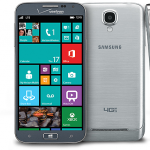
Just like the ATIV S which came before it, the Samsung ATIV SE is a rehash of the South Korean maker's previous Android flagship, the Galaxy S4 in this case, running Windows Phone 8. Even though Windows Phone 8.1 was just announced, the company is sticking to the release dating back to 2012.
The ATIV SE, which is only available at Verizon at this stage, is likely to be Samsung's Windows Phone flagship for quite some time, if the ATIV S is of any indication (it was released nearly 18 months ago). Luckily, the hardware does not disappoint.
South Korean mobile operators jump the gun on Samsung Galaxy S5 launch

Mobile operators in Samsung's home country of South Korea have decided to give themselves a head start on the Galaxy S5 launch, by making the smartphone available starting March 27. Its official worldwide launch is slated for next month, on April 11.
SK Telecom, KT and LG UPlus are the local mobile operators in question, with SK Telecom being the largest one in South Korea. Two weeks ahead of the official launch, the smartphone is on sale for ₩866,800 (roughly $809 or €587).
Information stored in glass houses won’t be protected by Samsung locks

Samsung is a powerhouse. Driven by an endless list of new technology and features, it has consistently dominated the consumer electronics market. Where once it was no more than a footnote in the mobile industry, Samsung is now the number one player (by volume) for smartphones. Particularly impressive about Samsung’s success in the mobile device market is the fact that it has built its business on Google’s Android software. The company’s real strength remains its ability to create compelling consumer hardware, but, as we know, consumer mobile devices are increasingly finding their way into the enterprise, which is a critical market for Samsung.
Not quite a year ago, in its first real attempt at being considered an enterprise-level mobile solution, Samsung announced "Samsung KNOX, an end-to-end secure Android solution that provides security hardening from the hardware through to the application layer".
Microsoft, Samsung 'take a leading role' backing Qi wireless charging

Qi is one of the most popular wireless charging standards, used by many companies in devices like chargers, speakers, smartphones and tablets. It adds convenience to such products, giving users the option to top up the battery on their handsets without plugging cables into them. I personally use a Qi wireless charger, made by Nokia, with my Lumia 920 and Google Nexus 7.
One of the hurdles Qi has to overcome to become more popular and attractive to consumers is mass-market support from key players, like smartphone vendors and mobile operators, which can dictate which standard they embrace. Qi appears to be on the right track, as it just added Microsoft and Samsung to its growing list of supporters.
Samsung mass-producing 20 nanometer 4Gb DDR3 memory for mobile devices and PCs
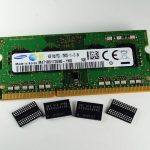
When it comes to computers, there are two routes to take -- buy a pre-built model from a manufacturer like Dell or build your own. While you can save money by going the pre-built route, you don't get to pick the specific components. Sure, you can pick the size of the drives or the amount of memory, but the brands and quality can be a question mark.
One of the most important components of any system build, is the RAM. It can be tempting to buy a cheap generic brand, but that is never a good idea. After all, system stability can take a major hit from cheap memory. Some of the best memory uses Samsung modules. Today, that company announces it has achieved mass-production of 20nm 4Gb DDR3 memory modules. This means improvements to smartphones, tablets and PCs.
Samsung wants to Milk Galaxy owners with lactose-monikered music service

When the iPod was first released, many thought it spelled the end of radio. After all, with an iPod, the listener can select the song of their choice from a library of thousands. Who would want someone else picking the music that they listen to? Quite a bit actually. You see, sometimes you just want to relax and listen to music without thinking -- radio can do that. Not to mention, it can introduce you to music that you were not aware of.
However, radio has expanded beyond AM and FM. While satellite radio is a natural progression, internet radio is the true future. Services like Pandora, iTunes Radio and Google Play Music can offer a wonderful experience wherever an internet connection is available. Today however, Samsung announces a new music service, called "Milk", which is exclusive to Galaxy device owners.
Time for honesty -- Samsung seems to have stopped fiddling with benchmark figures

Benchmarks are important. With so much choice in the world of computers, smartphones and tablets, a key factor for potential buyers to bear in mind is raw performance. A few months back benchmarking stalwarts Futuremark took the unusual step of delisting a number of handsets produced by HTC and Samsung after tests appeared to show that the phone artificially boosted performance when they detected benchmarking software was running. Now it looks as though this apparent cheating has come to an end.
Back in October, results published on Anantech showed how a number of popular phones seemed to be cheating the system, giving consumers a false representation of real-world handset performance. Now, according to new tests carried out by Ars Technica it would appear that handsets are behaving in a far more reasonable fashion after being updated to KitKat.
Lenovo, LG have a 'me too' moment, also tell Ellen they have better smartphone cameras than Samsung

Ellen DeGeneres' Samsung Galaxy Note 3 made waves at the Academy Awards after being used to snap an on-stage selfie and a group shot. Both quickly became hugely popular photos taken at the event, and target practice for the South Korean maker's rivals.
Nokia was first to take a stab at Samsung for the terrible quality of DeGeneres' selfie, implying she should have used one of its smartphones instead. The photo posted by the star even had the #blurry hashtag added on Twitter to make up for what was basically a missed shot. Not to miss this opportunity (to be unoriginal), Lenovo and LG also took to Twitter to convince us that their smartphones would have fared better than Samsung's phablet.
Samsung unveils ARM-based Chromebook 2 -- designed for home and school
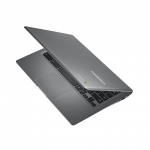
My first-ever Chromebook was a Samsung. The 11.6-inch laptop was inexpensive and revolutionary. Heck, it looked like a plasticy Macbook Air -- very sexy. However, all that glitters is not gold. While my relationship with the laptop started strong, the dual-core ARM processor and paltry 2GB of ram proved underpowered. Pages would load slowly, and the lag could be extremely frustrating.
While many people think of Chrome OS as being just a web browser, remember, it is actually a Linux distribution running a web browser. The more RAM the better, with 4GB being the bare minimum for an enjoyable experience. Today, Samsung announces two new ARM-based Chromebooks to serve as a follow-up to the original. Not only is the RAM increased, but the CPU is supercharged too.
Nokia subtly mocks Samsung for blurry Oscars selfie

Samsung's Galaxy Note 3 was the tech star of this year's Academy Awards, as the phablet was used by both Bradley Cooper and Ellen DeGeneres to snap two of the most popular pics at the event. Ironically, both photos are blurry (and, might I add, appear to be part of heavily staged acts).
Quick to take advantage of the free publicity, arch rival Nokia has subtly taken a stab at Samsung for the terrible quality of one of the photos, namely DeGeneres' selfie on the stage.
Samsung Galaxy S5 off to a good start, T-Mobile reveals record pre-registrations
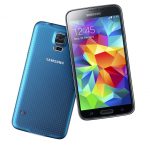
The Galaxy S5 is Samsung's latest Android flagship, launching in April in 150 countries across the globe. Even though we are more than a month away from the official release, some mobile operators are already giving prospective buyers the option to register their interest in the new smartphone.
US mobile operator T-Mobile is among them. Its landing page for the Galaxy S5 gives folks the possibility to be among the first to find out "all the amazing details" on Samsung's new device, and, each day, the chance to win a Galaxy S5 with the S-View Flip Cover. The prize definitely adds to the appeal of filling those boxes, with T-Mobile announcing record pre-registrations.
Plan to buy Samsung's Galaxy S5? Get a microSD card too (or the 32 GB model)

The amount of storage that is advertised in a product's specifications sheet never matches the user-available capacity when software is preinstalled on the device. That is to be expected, but there comes a point when customers may be getting too little space to store some content and install a few apps. With just a couple of games, that are growing in size nowadays, there might be nothing left available.
That is what upcoming Galaxy S5 buyers will have to deal with, as the preinstalled software on Samsung's new flagship takes up more than half of the advertised storage on the 16 GB model. Yes, that is roughly 8 GB occupied out-of-the-box.
Samsung details Galaxy S5's new octa-core processor (Yes, there is one)
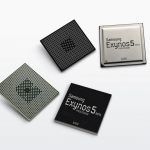
In keeping up with tradition, there will be two processors available in the Samsung Galaxy S5. The international version gets Qualcomm's quad-core Snapdragon 801, while another model -- that will most likely be available in non-LTE markets -- ships with the company's own octa-core Exynos chip, that Samsung just unveiled at MWC 2014.
Samsung is increasingly reliant on Qualcomm processors for its flagship Android devices, like the Galaxy S4, Galaxy Note 3 and, most recently, Galaxy S5, as the Exynos chips that arrived in 2013 have failed to live up to expectations. Even though those were octa-core designs, the Qualcomm-made, quad-core, solutions performed similarly and came with a very competent LTE modem as well. Samsung is not giving up (yet), as the new Exynos 5422 still aims to turn the tables in the company's favor.
Hey BYOD, Samsung's new Knox is here

BYOD is in full swing, but most businesses are not prepared for it. In order to maintain a high level of security, companies that embrace the movement, or want to, have to change, or adapt, their existing policies to accommodate the wave of devices their employees are bringing in, which is not what 55 percent of them are doing, according to a study issued last week.
Samsung is among the few mobile devices manufacturers to take an active role in ensuring its products are BYOD-ready and enabled straight off the bat. Its response to the movement is Knox, a solution the company released one year ago, to augment the Samsung for Enterprise program. And, now, the successor arrives to beef up Knox even further.
© 1998-2025 BetaNews, Inc. All Rights Reserved. About Us - Privacy Policy - Cookie Policy - Sitemap.